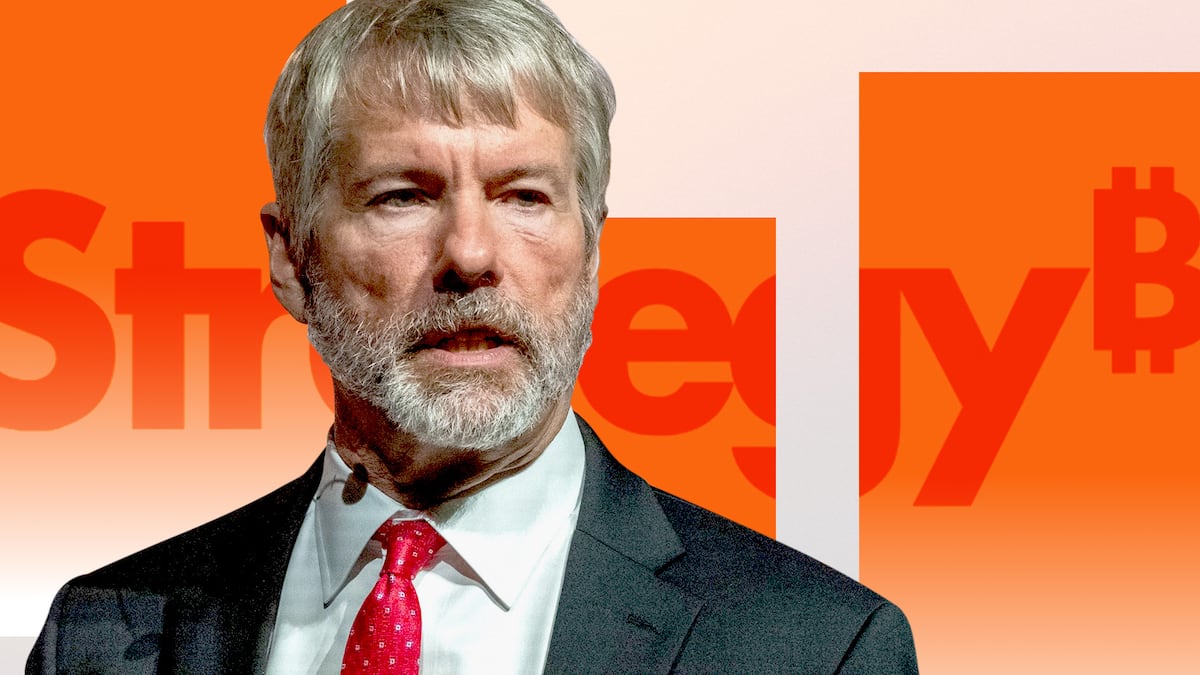- Michael Saylor sparked backlash at a Bitcoin conference.
- He cited audit risks including attack vectors from trolls to nation-states.
- Strategy holds more than 576,000 Bitcoin.
MicroStrategy founder Michael Saylor is facing a wave of backlash from Bitcoiners after he said that audits are a bad idea.
Saylor — whose firm, now called Strategy, holds more than 567,000 Bitcoin worth around $63 billion — dismissed proof-of-reserves, a transparency practice that lets companies verify their crypto holdings onchain.
“It’s a bad idea,” Saylor said at the Bitcoin 2025 conference in Las Vegas. “If you publish your wallets, that’s an attack vector for hackers, nation-state actors, every type of troll imaginable.”
Saylor told sceptics to ask AI about the security concerns of publicly publishing Bitcoin addresses.
“It’ll write you a book,” he said, with “50 pages of security concerns.”
DL News checked with ChatGPT, and it returned a five-page outline.
Saylor deflects
Critics were quick to pounce.
“So he doesn’t advocate self custody and will not promote public audits or trustlessness,” crypto analyst Toby Cunningham said on X. “The guy has come full circle right back to the system Bitcoin was created to destroy.”
Wall Street trader Josh Mandell said on X that Saylor deflected.
“He talked around the simple question, ‘How exactly is it unsafe to provide on-chain tracking?’”
Past failures
Snubbing audits flies in the face of one of Bitcoin’s founding principles — verifiable, transparent ownership.
For a company that revolves its entire business model around Bitcoin, the stance raises eyebrows.
That’s because past crypto failures are still top of mind for many.
In 2022, FTX collapsed after it was revealed the exchange didn’t hold the customer deposits it claimed.
Lending platform Celsius also crumbled amid liquidity crises. Both now-collapsed companies are on the hook for billions in repayments.
Proof-of-reserves is a way for crypto companies to prove they really hold the Bitcoin they say they do.
Did Saylor sell?
Indeed, institutions have begun performing proof-of-reserves.
In late January, Bitwise, issuer of the sixth largest Bitcoin exchange-traded fund with $4.2 billion in Bitcoin, published the addresses for its holdings. It is the first of its kind to do so.
Some speculate that Binance’s former CEO Changpeng Zhao referred to Saylor in a cryptic X post about the situation.
“He probably sold Bitcoins,” said Zhao.
Pedro Solimano is a markets correspondent based in Buenos Aires. Got a tip? Email him at psolimano@dlnews.com.


